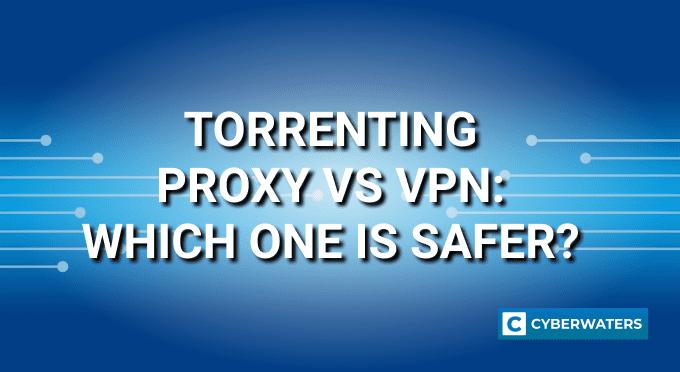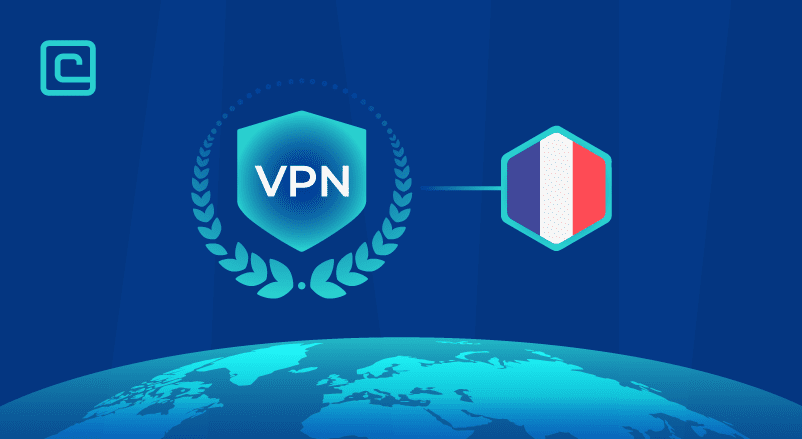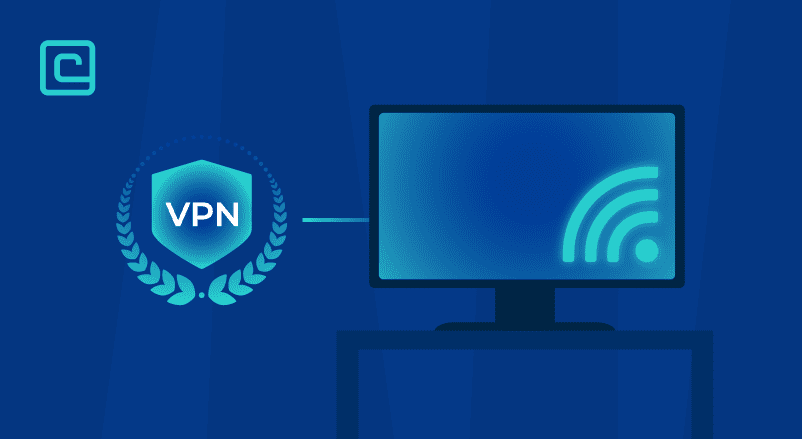Torrent Proxy vs VPN: Which One is Safer for Torrenting?

In the torrent proxy vs VPN debate, the main talking point surrounds the same age-old concern that has been deterring torrenters from using protection: speed and assurance of safety.
Will I get my original Internet speed while torrenting if I use a proxy or a VPN? Will a proxy server affect peer discovery and trackers? How reliable are proxy servers? Will I get enough seeders when I’m using a VPN?
It’s always about speed and safety. An Internet user is more likely to avoid using any form of protection while torrenting if they believe it will lead to slower downloads. While speed can be managed to some extent, the safety aspect is not something that you should compromise on.
So, let’s take some time to compare the two most common forms of torrenting protection – torrent proxy and VPN. While both have equally strong features, a comparison will set the record straight and hopefully convince you to torrent more responsibly.
Quick Verdict – VPN is Better than a Torrent Proxy
Before we jump into the detailed analysis, here’s a summary of what we learned.
In the torrent proxy vs VPN debate, VPN emerges as the definite winner because:
- VPN cloaks all your web traffic and not just torrent connections
- VPN provides encryption – over and above the cloaking – that proxy servers don’t
But a proxy server wins in the speed department because:
- VPN throttles speed and can increase download time
Frequent torrenters – those who download daily and pirate copyrighted files – should consider this while choosing their favored option because copyright strikes can come out of nowhere. With a VPN, you are essentially looking at blanket protection as opposed to torrent-only protection, which should be the ideal setup for serious torrenters.
Test Your VPN Knowledge – Take A Quiz!
VPN Recommendation for Torrenting
We highly recommend NordVPN for torrenting because it allows you to connect to special P2P servers and use its proprietary NordLynx protocol. The latter is perhaps the best way to torrent as it nearly maintains your original Internet speed and covers your tracks across tracker and peer lists, as we observed in our review earlier this year.
However, this does not mean that torrent proxies are a lost cause. They are still good in their principal function and a lot better than having no protection at all. So, it really depends on how frequently you torrent, what type of files you are downloading, and from where.
What is a Torrent Proxy?
A torrent proxy is a stand-in connection that routes your traffic through another server, thereby cloaking your original IP address. Look at it like an extra step – or a detour – that your connection takes to avoid exposing your IP address and identity to the website that you are connecting with. ‘Cloaking’, meaning covering, is the key term here.
When you torrent using a proxy, it acts as a shield for your web identity i.e., your IP address. This lets you stay hidden as the proxy conceals your IP address and protects you from all the bother that we discussed above.
A torrent proxy is just a fancy name for a proxy connection that you can use with a torrent client like BitTorrent or uTorrent.
How Does a Torrent Proxy Work?
It’s pretty straightforward.
Step #1: You need to set up the torrent proxy bypass on your client/system:
- You purchase a proxy server (e.g.: Socks5) from a provider like NordVPN. This will get you torrent proxy port forwarding credentials
- Set up a torrent proxy on your preferred torrent client like BitTorrent
Step #2: Next step is dependent on the torrent client. All types of communication – tracker pings, peer list generation, and downloads – will then be routed via the proxy server by your torrent client. This ensures that all traffic from your torrent client to the tracker/s is routed from the proxy server. This essentially hides your original IP address from the tracker and from appearing in the peer list. Instead, the proxy IP will show up. (See the Testing section below to see how.)
Demerits of Using a Torrent Proxy
A torrent proxy server helps you stay protected while torrenting. But that’s about it. Your IP will still be exposed when you browse through websites like The Pirate Bay or 1337x, which is the main drawback of this option.
Your internet service provider (ISP) can also keep a track of your torrenting activities, which can be detrimental to the entire idea of using protection. Since ISPs can work with surveillance agencies, this may not be an ideal option if you torrent the latest Hollywood movies (award season screeners), paid software, and DRM-cracked video games.
Another drawback is that there is no guarantee that your torrent client will honor your proxy settings. Such gaps at the client-side have been reported countless times on the web. This is why even torrenting over Tor is not a good idea.
How Does a VPN Compare with a Torrent Proxy?
Collectively, the demerits of a torrent proxy bypass are what push a VPN as a better and safer option for torrenting. As you may already know, a VPN gives you both encryption and overall anonymity, which reduces your chances of being caught while torrenting.
A VPN also hides your original IP when you are browsing for torrent files. For example, when you browse through 1337x for a torrent file, your ISP will know that you have visited this specific website. Having a VPN will route your browser traffic through a VPN server, which means your ISP has to dig deeper to find out more. Unless there’s a cause, your ISP will not bother to pick up the spade.
Caution – Using torrent proxy with VPN is not recommended as the former may bypass the VPN protection.
VPN’s Integration with Torrent Clients
Most VPNs that we have tested can be easily used for torrenting. There is no integration needed because VPNs work independently and route all your computer traffic via its server. Since your torrent client connects via your Internet connection, there is hardly any chance of IP leakage. As a result, it does not require any special setup. Just install and switch on your VPN and you are done.
According to our research, all major VPNs like NordVPN, Surfshark, and ExpressVPN can be used across torrent applications such as:
- µTorrent (or uTorrent)
- BitTorrent
- Deluge
- qBitTorrent
- Libtorrent
- Transmission
- MediaGet
- Zona
These torrent clients also support proxies.
Differentiating Torrent Proxy and VPN
Here’s a table listing down the major differences between the two options.
| Torrent Proxy vs VPN – Comparison | |
| Torrent Proxy | Virtual Private Network (VPN) |
| Depends on torrent client for execution | Works independently |
| Cloaks only torrent traffic | Cloaks all web computer traffic |
| No encryption | Encryption present |
| Minimal reduction in speed | Noticeable reduction in speed |
And a table listing the similarities, just in case you need to do a separate analysis.
| Torrent Proxy and VPN – Similarities | |
| Torrent Proxy | Virtual Private Network (VPN) |
| One-time setup | One-time setup |
| Paid option only | Paid option only(free VPNs are largely ineffective) |
| Easy to set up and manage | Easy to set up and manage |
Torrent Proxy vs VPN – Verdict
The competition has a clear winner. Save for the speed throttling issues – which can be mitigated to a certain extent by using a good-quality provider – virtual private networks come out as the safer option for torrenting.
VPNs not only provide you strong overall anonymity but also encrypt your torrenting data. Enjoying anonymity at the cost of a small percentage of speed reduction should not be a deal-breaker in the larger scheme of things. We at CyberWaters, therefore, highly recommend getting a VPN and employing it for your torrenting activities.
VPN Recommendation for Torrenting – NordVPN
We recommend NordVPN because of a variety of reasons. Apart from its industry-leading VPN client and infrastructure, the following four key features make it a better option:
- NordLynx protocol for better torrenting performance
- P2P-focused servers
- Next-generation encryption
- No-log policy
Testing VPN in Actual Torrenting
We have tested both proxy and VPN for torrenting in our reviews. Here, we’ll take the example of NordVPN’s performance to see how VPN as a middleman affects your torrenting activity.
Test Case #1 – Using NordVPN’s NordLynx Protocol
We observed a negligible difference in speed when we used the NordLynx protocol. It caused faster tracker latching and peer exchange, which are signs of a healthy connection. This is the ideal setup if you choose NordVPN.
Test Case #2 – Using NordVPN’s Specialty P2P Servers (via OpenVPN protocol)
We observed some major reduction in speed while downloading a 500 MB file through a P2P using µtorrent. Over 6 minutes lapsed and the speed maintained around that range.
Note –The speed of torrenting depends on the number of seeders, seed-leech ratio, and tracker strength. Keep these in mind while testing out a VPN on your end.
A Short Note on IP Blockers
An IP blocker is a lesser-known and less-effective way to block prying eyes while torrenting. It’s also known as IP blacklisting, which simply means blocking IP addresses of entities that you feel are not a reliable participant in your P2P connection. It involves detecting and blocking IPs that may be surveying your activities.
However, using an IP blocker is not a foolproof way for safe torrenting. We don’t recommend it.
Why Torrenting Without a Proxy or VPN Is Not Safe?
Lastly, if you are wondering why this debate was needed in the first place and why being a bit more cautious while torrenting is suggested, here is a good reason.
Torrenting – where you download files over a peer-to-peer network – is mainly associated with illegal file-sharing and piracy. A majority of torrenting involves sharing of content such as pirated music, movies, games, and software. Since these are mostly copyrighted, uploading and downloading them are considered illegal in most parts of the world. If you are caught sharing such copyrighted files – even when you are not accessing them via torrent – you can land in legal trouble. This is what makes torrenting illegal and dangerous.
Using a torrent proxy or VPN is a way to avoid being caught. It makes torrenting safer by hiding your original IP address and rerouting traffic.
Torrenting Without Proxy or VPN Can Invite Litigation
Torrenting is dangerous because it exposes your Internet address to the public: when you participate in a P2P communication, you automatically list your IP address as a peer (a seeder or a leecher), which gives you away. If the owner of the content in question decides to pursue a case of copyright infringement against the users who are involved in that communication, your IP address will likely be logged and filed for litigation. This may or may not lead to charges, depending on which country you are in and the intensity of the issue.
Naturally, a lot of unsuspecting users fall prey to such lawsuits launched by surveillance agencies and cyber law enforcement at the behest of copyright preservers. There are also frequent reports of court subpoenas finding their way to users who torrent without a proxy or VPN.
Passive monitoring of your Internet history via your ISP is all the law enforcement needs to suspect you. You may call this a longshot – which it is – but the question is: why take the risk when you can easily cover yourself online?
Such a strike or a court subpoena can go from bad to worse very quickly. And if the prosecution persistently pushes, it can affect you financially, mentally, and socially. While it depends on the type of file downloaded, your region, and the intensity of the copyright infringement, we feel it’s best to spend a few dollars every year for simple anonymity. It’s definitely worth it.
Advantages of Torrenting With Protection
But if you are still not convinced, here are five more reasons to buy some torrenting protection:
- You can download anything over P2P when you have protection
- You can safely browse torrent sites including lesser-known, geoblocked ones
- It gives you peace of mind
- It does not publish your IP address in the public domain
- You can stay away from attacking peers with ulterior motives like fraud
You will agree that a good night’s sleep is worth a few dollars a month/year that also keeps you generally protected online. Choose one of the options above and safeguard your torrent activities.
How to Check if VPN/Proxy is Working When Torrenting?
Once you have chosen your preferred type of protection and set it up, it’s time to check its performance. Follow these five simple steps (ideally on a desktop browser):
- Go to ipleak.net
- Scroll down to the ‘Torrent Address detection’ section. Click on ‘Activate’
- A Magnet link will show up. Click on it to open it on your default torrent client
- Let your torrent client process the Magnet link (it has no data so it will keep on processing)
- Within a few seconds, you will see a new IP address under the ‘Torrent Address detection’ section
If this IP is different from your original IP address, you have successfully cloaked your torrent connection. If not, you will need to set it up again.
Note – You can also use this process to check if a torrent proxy is working.
Torrent Proxy vs VPN – Frequently Asked Questions
Answers to some of the most commonly asked questions about protection for torrenting:
Should I hide my IP while torrenting?
Yes. Hiding your IP while torrenting prevents you from getting entangled in legal troubles should a civil case be charged against you for copyright infringement. If you do not download pirated content, there is no urgent need for a VPN or a proxy.
Will I get my original Internet speed while torrenting if I use a proxy or a VPN?
No. There will be some throttling as traffic will be routed through another server. You can expect anywhere from a 5% to 20% reduction in best cases.
Does a proxy server affect peer discovery and tracker visibility?
Yes. Some trackers may blacklist spammy servers that could eventually lead to a ban. However, this is not a serious issue as you can still use other trackers to download via P2P.
Will I get enough seeders when using a VPN?
Yes. The number of seeders depends on the popularity of the torrent file and its connection to a sandbox.
Will I get in more trouble if I use a VPN as it will be construed as I am hiding something?
No. VPN is foremost a privacy software. No one can question you for using a VPN.
Is torrenting illegal?
No. However, downloading copyrighted (pirated) content over a P2P network is considered illegal and can invite legal troubles like prison time and hefty penalties.
Is torrent proxy better than VPN?
No. Torrent proxy does not allow encryption and only cloaks torrent data.
Can I be tracked if you use a VPN?
Your internet service provider (ISP) will know that you are using a VPN. This information can be used to keep further track. If needed, your original IP address can be traced even if you use a VPN but only if there’s probable cause (e.g.: large-scale copyright infringement).
VPN Expert, BEng in Network Engineering

